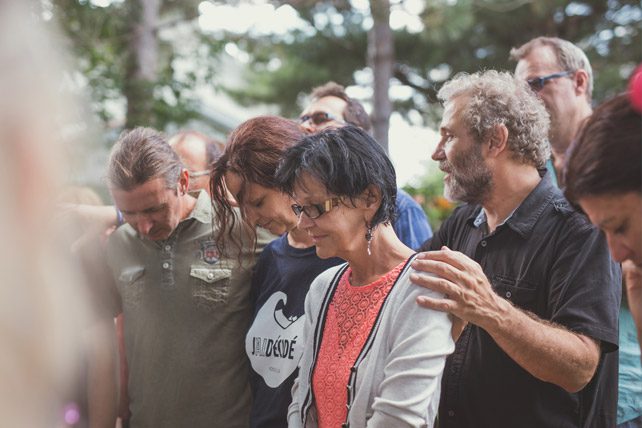This fundamentally changes the value our churches offer the world. When we look at measuring what happens through our people, we suddenly care less about the number of people in the pews and much more about spurring on our church community to live like Jesus in the small, hallowed places. At work. At school. On social media.
The greatest thing we can do as we rebuild our churches post COVID-19 and in an increasingly divisive context is to live with an abundance mindset that believes that we have all we need to flourish in God’s mission. That is, every single person in your church is designed to fulfill a God-given mission. What would it look like to nurture and empower them on that path? This is Ephesians 4 at work, with every member of our churches playing their unique and purposeful part. This latent energy in our pews can be released to minister to those who are in need, burned out, and struggling socially, emotionally, and even physically. That is collective might.
As we rebuild our churches, we do so together, with a belief that we don’t lack what we need, but rather, we already have exactly what we need and it simply must be released. This requires a re-centering on our mission as a church community. In Christians in the Age of Outrage, Ed Stetzer writes, “Every church and believer must ask: What are we known for in the community? What do we represent?” Once we embrace our call to mission and we believe in the fullness of God to provide all we need to be on mission, everything changes.”
Empowered for Mission
All of us — pastors, church leaders, and community members — have a unique competitive advantage. We all have something others don’t — stories, time, talent, proximity, and most importantly, relationships. An abundance mindset understands that today our people can access entertaining, educational, even enriching content anywhere.
But our people cannot get close, authentic, meaningful connections and community anywhere. Churches will be places of overflow as church leaders understand this competitive advantage and help release the latent passion and energy to be on mission — the collective might — of their people. Stetzer writes, “We are not commissioned to retreat into our buildings to form holy huddles and talk about the good old days.”
As church leaders, God has put each person under your care to be both ministered to and mobilized out to change their world. This happens on a larger scale as well when local churches partner with networks, parachurch ministries, content creators, digital specialists, counselors, mentors, and the like. Ministry truly becomes a team sport.
And as leaders adopt more of an abundance mindset, a giant weight is lifted from their shoulders.
In the West, decades of consumption and attraction-led ministry have resulted in the false belief that “ministry belongs to the ordained.” This is absolutely counter to the New Testament model. No wonder pastor health and weariness are at all-time highs. We find freedom when we actively look to our church community and release their passion to serve each other.
A scarcity pastor asks the congregant, “Why don’t you bring more people on Sunday?” An abundance pastor asks, “How can we, along with others, give you what you need to be all God created you to be?”
In teaching and modeling this type of discipleship, you are removing a burden from yourself while offering an immense gift to every person you serve.

